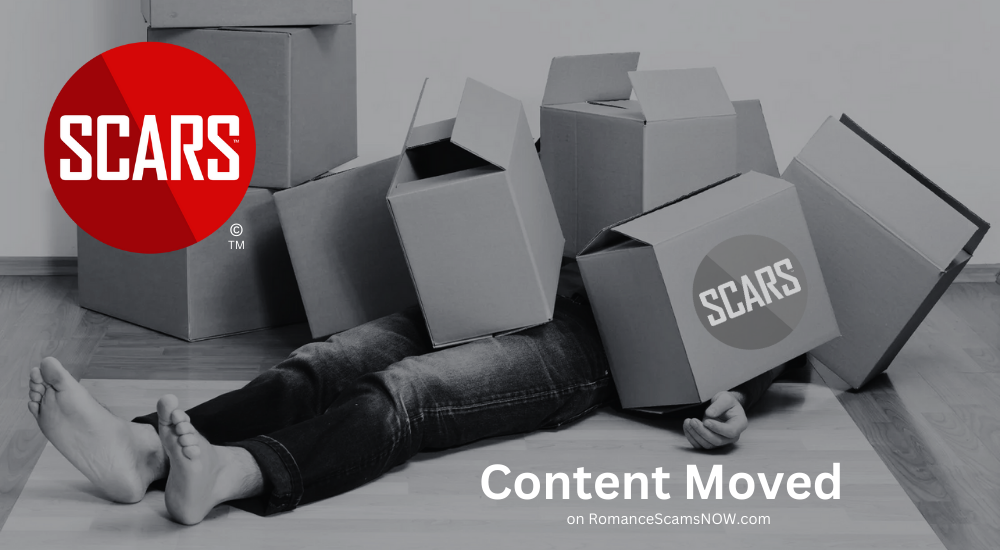CONTENT MOVED
More Cognitive Biases – Part 2
Important Information for New Scam Victims
- See more at www.ScamVictimsSupport.org – a SCARS Website for New Scam Victims
- New Scam Victims – the Importance of Starting Off Right
- SCARS 3 Step Scam Victims Support & Recovery Program
- Importance Of Learning In Scam Victims’ Recovery From Scams
- For New Scam Victims – Additional & Essential Information



Please Leave A Comment - Tell Us What You Think About This!